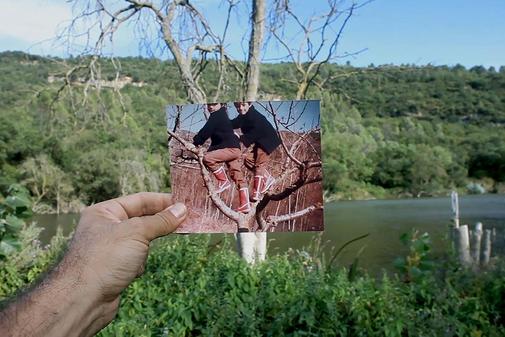- 'Saturday fiction' Gong Li's eternal and perfect return
- Roy Andersson: The polysemy of the absurd
Account Oskar Alegria (Pamplona, 1973) who was surprised to find in the Venetian Lido the small avenue of Le Pazienze that would be something like the street of "the paciencias". The striking is the plural. How many ways to have patience admits constancy or, why not, boredom? Is it possible to multiply by several an abstract noun? And the director, who presents the other Spanish film in the Orizzonti section of Venice, replies to everything yes: "The interesting thing is to reach that last patience, the most noble of all , which consists in not expecting anything at all." His discovery, in reality, goes hand in hand with 'Zumiriki', his film. Because that's what it's about: strange streets, plurals that don't end and happy and even absolute expectations. Alberto Barbera, the director of the Mostra, pointed it out as soon as the festival started as the most unclassifiable of the programmed proposals. And with that, as the director himself admits, he was classified.
To locate us, Zumiriki (the Basque name to designate the island that is in the middle of a river) tells the story of a man determined to trace his past: that of his childhood and that of his family. He also recounts the adventure of a film director who decides to live completely alone during four months of spring and summer in the forest where he grew up and where his father took care of cattle while entertaining himself as an amateur filmmaker. Zumiriki is a self-portrait while traveling to a mythical terrain flooded because of a dam that, in effect, buried the middle island and the title.
But not only that, Alegria's tape is, in its own way, an exploration of nature that ends in silence and that feeds on lost cows, animals whose eyes shine at night and a hidden cabin from the I have to observe everything. Of course, all of the above, is nothing more than a part of a film that, one step further and as the director himself says, is built like birds make their nest: with the hole that leaves the pressure of a body without arms when making the same floor.
If you find them unclassifiable, be careful, they will not be qualifying ahead of time .
Actually, Zumiriki is a precise and precious object that unfolds like life itself before the eyes of the beholder. There appear the ghosts of a remote past trapped with an outlet next to the recurring image of a film director who reads, walks, goes astray and slims. In all the time he spent in the work of filming, Oskar lost 12 kilos and the voice , he left a huge beard and ended up a close friend of the cormorants who threw fish at his shelter.
And as it progresses, Zumiriki gets lost. Until the silence perhaps, even that state or form of patience in which nothing is expected anymore. The metaphor used by the film has to do with the mastery of the elements that, according to the presocratics, made up nature. The tape begins with the feet on the ground and on it is constructed of words, voices and images. And so on until, little by little, it is diluted in fire, in water and finally in the same air. It is cinema that evaporates. Always aware of memory and always pointing to the possibility of a reality and a world, both completely new.
Oskar Alegria long ago signed the documentary Emak Bakia . That was the job and the trophy of a hunter who came out to meet whatever arose. It was a search for erratic and personal strength from a poster that appeared in a film by photographer Man Ray . Now, yours is the attitude of a fisherman. It is about sitting and waiting with the only weapon of patience or, better, of all the patience in the world. Until the last and most desired of all.
The result is a tape that unfolds into another thousand for each image, which surprises in each corner and, finally, endorses the intimate sense of the look. It's about looking at nature and yourself for the first time. And forever. The adventure is towards the conquest of the world, of the inner world. As all.
In his book on transcendental cinema, Paul Schrader brings up an old Zen precept that says something like this: "When I started studying Zen, mountains were mountains; when I thought I had understood Zen, mountains were not mountains; but when I finally reached full knowledge of Zen, the mountains became mountains again. " Well, the island in the middle of the island is Alegria mountain. And because of Zumiriki , ours. Brightly unclassifiable. Dazzling maybe.
According to the criteria of The Trust Project
Know more- movie theater
- culture
The new James Bond movie already has a title: 'No time to die'
Cinema 'The Lion King', the hen of Disney's golden eggs
IN CAMERA DE ONCE VARASCarlos Saura: "I felt betrayed by Antonio Banderas"

